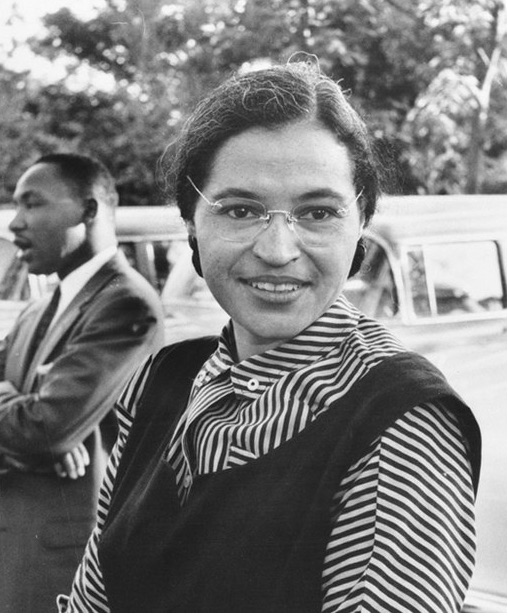Rosa Louise McCauley (later Rosa Parks) was born on February 4, 1913 in Tuskegee, Alabama. She was partly of African ancestry, though one of her great-grandfathers was Scottish-Irish and one of her great-grandmothers was a Native-American slave. When her parents separated, she was raised by her maternal grandparents on a farm on the outskirts of Montgomery, Alabama.

When she was seated on a bus on December 1, 1955, in Montgomery, Alabama, the bus driver James F. Blake ordered her to vacate her seat located in a row of four seats in the “colored” section to accommodate a white passenger, because the “white” section was filled. When she refused, she was arrested for civil disobedience. Her refusal to be victimized by a discriminatory law led to a court decision in 1956 ruling, that bus segregation is unconstitutional under the Equal Protection Clause of the 14th Amendment to the U.S. Constitution. Roas will remain a symbol of the black struggle for equal rights under the American Constitution. She is also a reminder of the importance of civil disobedience when human rights are compromised.
Reflecting on past events, Rosa once observed, “One person can change the world.” …and she did.
